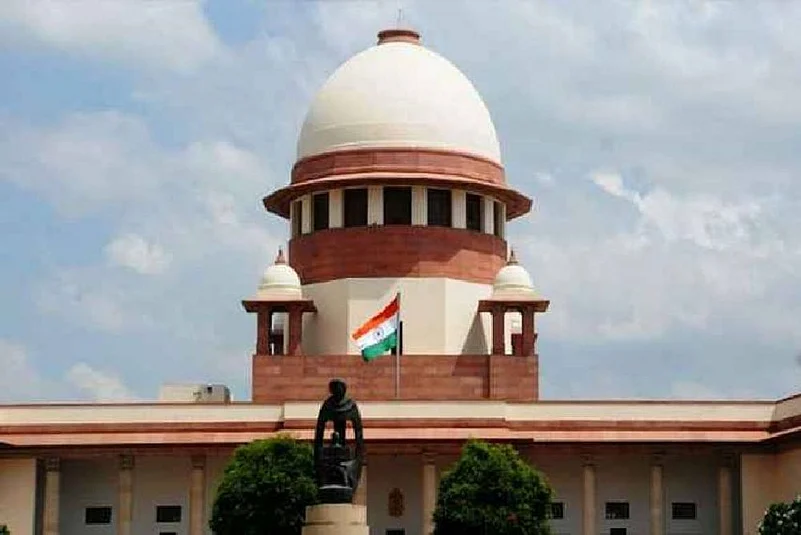The Supreme Court on Monday refused to refer to a larger bench a batch of pleas, challenging the constitutional validity of the Centre's decision of August 5 last year to abrogate provisions of Article 370.
A five-judge constitution bench headed by Justice N V Ramana had on January 23 reserved its order on this issue.
Opposing the plea, the Centre had said that abrogation of provisions of Article 370, which granted special status to the erstwhile state of Jammu and Kashmir, has become a "fait accompli" leaving sole option to accept the change.
NGO People's Union of Civil Liberties (PUCL), Jammu and Kashmir High Court Bar Association and an intervenor had sought to refer the matter to a larger bench.
Advertisement
They have sought reference to a larger bench on the ground that two judgements of apex court -- Prem Nath Kaul versus Jammu and Kashmir in 1959 and Sampat Prakash versus Jammu and Kashmir in 1970 -- which dealt with the issue of Article 370 are in direct conflict each other and therefore the current bench of five judges could not hear the issue.
Attorney General K K Venugopal, appearing for the Centre, had told the bench -- also comprising Justices Sanjay Kishan Kaul, R Subhash Reddy, B R Gavai and Surya Kant -- that "the abrogation of provisions of Article 370, has now become a "fait accompli" leaving sole option to accept the change".
Advertisement
Referring to the two earlier judgments, Venugopal had said that they were not related to each other and dealt with different issues.
He had said that the verdict in Prem Nath Kaul versus Jammu and Kashmir did not deal with Article 370 rather with the question whether the Maharaja had the legislative power or not.
While referring to the verdict in Sampat Prakash versus Jammu and Kashmir, Venugopal had said though it dealt with some aspects of Article 370, it was not in direct conflict with the verdict in the Kaul case and therefore the present issue should not be referred to a larger bench.
Solicitor General Tushar Mehta, appearing for Jammu and Kashmir administration, had said he adopts the arguments of the Attorney General and favours no reference to larger bench.
Senior advocate Rajeev Dhavan, appearing for Jammu and Kashmir People's Conference, had said that he is supporting Centre on the question that no reference is needed to a larger bench.
A number of petitions have been filed in the apex court including those of private individuals, lawyers, activists and political parties and they have also challenged the Jammu and Kashmir Reorganisation Act, 2019, which splits J&K into two union territories -- Jammu and Kashmir, and Ladakh.
Advertisement
(With PTI inputs)




















